Steve Addison's Blog, page 4
April 1, 2025
The fall and rise of movements in Iran
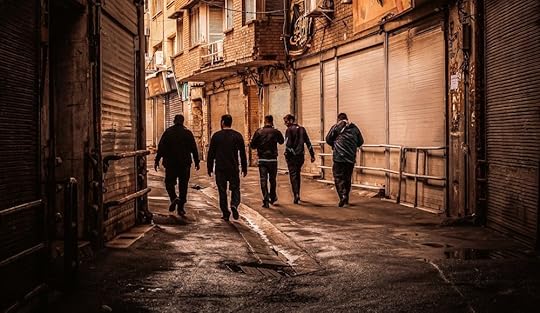
Sad news of the demise of the Anglican Church in Iran. Once home to a thriving membership in the hundreds, since the Islamic revolution in 1979 it has dwindled to less than 100 people in a sea of militant Islam bent on its destruction.
Eight days after the revolution, the pastor of the Anglican church in Shiraz, Arastoo Sayyah, was murdered. Bishop Hassan and his family had fled the country after escaping an assassination attempt. When the bishop’s son, Bahram, returned to Iran the following year, he was murdered. Much of the church’s property was confiscated by the regime.
With its bishop in exile, its three church buildings shut and forbidden to take on new members, the future of the Anglican Church in Iran is bleak. Unless something changes, the membership will dwindle, leaving only empty buildings.
Yet 1979 also marks the beginning of the rise of underground movements of Muslims following the Messiah Jesus. They have no bishops or church buildings and don’t need permission to spread the gospel and make disciples among their friends and neighbors.
Estimates range from one to two million disciples in Iran. All around the world Iranians are among the most responsive people.
For generations, Anglicans pioneered churches among unreached peoples across the Muslim world. But Britain is no longer a colonial power. The world has changed. The paradigm has shifted. The demise of the Anglican churches in Iran is tragic, yet we must not lose sight of the movements of disciples and churches that are springing up across the Muslim world without clergy, without church buildings, and without permission.
Their only resources are the Word, the Holy Spirit, and Christ’s command to make disciples of the nations.
What the Islamists meant for evil, God meant for good.
Source: The suffocation and slow death of the Anglican Church in Iran
March 26, 2025
OUT NOW! Acts and the Movement of God Audiobook

OUT NOW!
Announcing the release of Acts and the Movement of God audiobook.
Listen to the free sample on the Movements podcast.
Download the accompanying notes
Available at these outlets . . .

March 25, 2025
347-Getting Started in Czechia
A conversation with father and son, Pavel and Danny Vopalecky about making disciples and planting churches in the Czech Republic.
March 19, 2025
Dinner with Jai

I had dinner in Bangkok last night with Jai, a brother from Laos.
When Jai was twelve, his cousin shared the gospel with him and he turned to Christ from an animist background. He’s been making disciples ever since. He wants to reach his people and free them from darkness and sin to life in Christ.
To support himself and his family, he still farms rice, chickens, ducks and two cows. He takes the gospel wherever he goes. He casts out demons, heals the sick, makes disciples and plants churches. Thousands have turned to Christ, and hundreds of churches have started.
Resources are scarce, but he makes do. Social and official persecution are always a factor. The police warned him many times, “Stop doing this, or we’ll charge you.”
He’s been in prison once, for one year and twenty-four days, but who’s counting?
The prison was hours away. His wife Sawan would ride the bus every week to see him and bring much-needed food.
Jai was threatened but not beaten in prison. He led eleven prisons to Christ and formed a new church behind bars.
When he was finally released, it was made clear that there would be no imprisonment next time. If you keep spreading the gospel, we’ll have you killed. It’s happened many times before. Government officials hire professional criminals to kill Christian leaders who refuse to remain silent. Their bodies left in prominent places.
Jai could go on the run and get his wife and children safely across the border. There he could apply as a religious refugee to be resettled in the West.
But Jai and Sawan have agreed that God has called them to reach their people. So they stay.
March 14, 2025
Multiplying disciples and churches in Laos
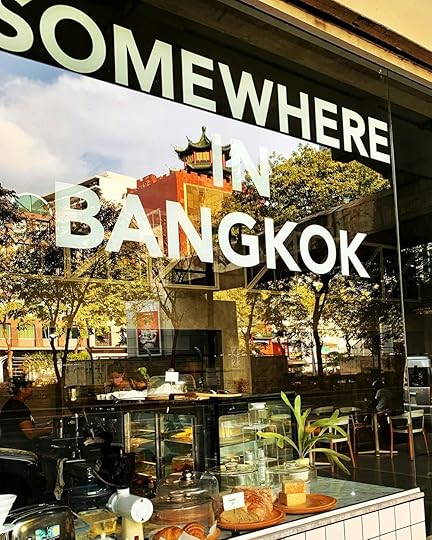
In a bustling café in Bangkok, Peter and John sat down to discuss their remarkable journey in Laos—a Southeast Asian nation where the gospel is advancing against incredible odds. Together, they have spent 50 years fostering movements that multiply disciples and churches.
Peter’s journey began in the 1990s. He trained and discipled local believers, leveraging people of peace to spread the gospel through their networks. By the early 2000s, local believers had baptized thousands of new disciples in multiple streams and provinces and saw many dozens of simple churches formed. All of this in a nation still under Communist rule.
In 2009, John started into the work of forming an apostolic band, and with Peter’s guidance, he embarked on the challenge of making disciples among a remote and unreached people group in one of Southeast Asia’s most closed countries.
Despite the progress, the work faced significant obstacles:
1. Competition for Leaders: Traditional denominations and development organizations often lured away key leaders with offers of salaries, education, and leadership roles. This introduced competing philosophies and ministry approaches that then undermined the sustainability of the indigenous movement. Some of the best pioneers were drawn away; others were discouraged.
2. Persecution: Opposition began within families and escalated to include local and national authorities. Believers faced threats, fines, beatings, eviction from their homes, houses being dismantled, imprisonment, and even death.
Professional assassins executed a leader in front of his teenage son. His wife, now a widow, was no stranger to suffering for Christ. As a young girl, she witnessed her father leave his role in the government and turn to Jesus, only to be convicted of treason for believing in Jesus. He was sentenced to 15 years in prison for his faith. She grew up without a father and now has lost her husband to the cost of following Christ.
3. Cultural Barriers: The majority of the population is Buddhist, with strong cultural and religious traditions that pose significant barriers to the gospel. Reaching the Buddhist-majority Lao people remains a major challenge, with second and third-generation churches among Buddhists being rare.
4. Traditional Denominational Influence: The introduction of centralized seminary programs risked disrupting the indigenous movement by imposing a more structured and less adaptable approach to disciple and church multiplication.
Despite these challenges, Peter and John partnered with Lao leaders to launch a new team in a new location among an unreached people group. This effort resulted in hundreds of new disciples and churches, reproducing to the second and third generation.
When the evangelical denomination introduced traditional seminary programs. Peter and John met with the denominational leaders to share what God was doing and explain why preserving a simple, Biblical approach to disciple and church multiplication was critical.
To their surprise, the national church leaders not only embraced the vision but invited them to train all their leaders in movement principles and practices. The Holy Spirit moved powerfully, and those passionate about multiplying disciples were empowered to proceed. For those who hesitated, the message was clear: “We are going to do this.” Leaders who resisted were replaced.
At the center of this transformation was a 70-year-old patriarch of the church. God stirred his heart, and he dedicated his remaining years to seeing multiplying churches planted among every people and place in the country.
Since 2017, over 50,000 new disciples have been baptized, and 1,200 churches have been planted across Laos. In 1990 the Christian population was 0.2% then grew to about 2% by 2007, today it is over 3%.
Over 100 people groups—mostly animists—have been engaged by near-culture or same-culture disciples. Movements are thriving among minority groups, but reaching the Buddhist-majority Lao people remains one of the greatest challenges. Second and third-generation churches among Buddhists are still rare.
But that’s not the end of the story . . .
March 12, 2025
346-When Instant Success Takes Decades
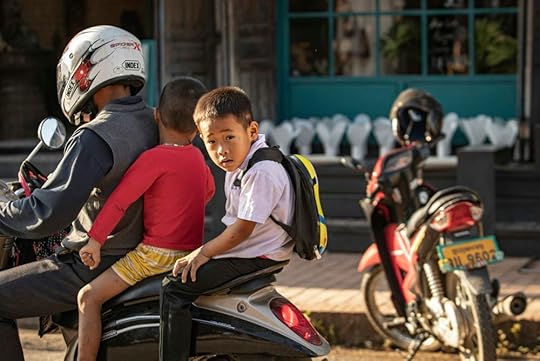
From a noisy cafe in Bangkok, Peter and John give an update on movements of disciples and churches in Laos, SE Asia.
March 4, 2025
Lessons from Coaching on the Sidelines

By the time Joe arrived in northern Iraq he understood how movements work. He’d spent two years in north India learning the essentials. Through training and coaching local leaders, movements had launched among the Bhojpuri and Magahi peoples. The progress attracted the attention of the authorities and he had to leave India.
Joe served among Syrian refugees and Iraqi Kurds. The locals he trained, planted churches in the refugee camps. Outside the Kurdish region of norther Iraq, ISIS was still in control.
During this time he met Diar, a disciple who fled across the border from Iran. Jesus had appeared to him in a dream dressed in white. He’d left Iran in search people who could tell him more about this Jesus. He found some house church leaders and they baptized him and taught him.
Diar crossed back into Iran and later returned to Iraq with friends he led to Christ. He wanted them taught and baptized.
That’s when Joe and Diar met. Diar was already winning his friends and family, but no-one had trained him to make disciples. No-one had cast vision for reaching Iran.
In northern India Joe had learned some simple, biblical, reproducing skills and tools for entering unreached communities, sharing the gospel, making disciples, forming churches and multiplying workers. He passed these on to Diar and his friends.
Diar brought some more friends across the border to be trained and sent back into Iran to reach their “oikos”. Which they did. Iranians have suffered under Islamic rule since 1979. They are hungry for the gospel.
Eventually Joe said, “We’re not baptizing any more of your people from across the border. We’ll train you to go back and baptize your own people, train disciples and form healthy churches that multiply.”
That’s how the movement started and spread to multiple provinces in Iran. It began in Tehran and jumped over to Ilam, Azerbaijan then in the Golestan region and Mazandaran. All through networks of relationships — both Kurds and Persians.
Evangelism, baptism and discipleship now took place in Iran. Joe and Diar still intentionally brought leaders across the border for training. They took them through Titus and Timothy on the characteristics of a godly leader. They covered the priesthood of every believer, releasing authority to baptize. They cast vision to engage new locations, new people groups, new provinces.
Joe had learnt to do this in India with local leaders.
Joe laid the list of unreached places and peoples before the emerging Iranian leaders and they asked God for what they should do.
They read Revelation 7, 9–10 together and cast vision for every tribe, every people, every language to have an opportunity to hear the gospel.
Joe reminded them, they have the same Spirit who raised Jesus from the dead. They’ve experienced the oppression of Islam throughout their whole lives. Now they are free and called set others free. They have the command of Christ to make disciples and the promise of his presence as they go.
Diar and his people risked their safety and freedom to bring the gospel to every province. They have healthy churches in twenty-six of Iran’s thirty-one provinces.
Ruhosh is a professional who travels to different provinces for her work and to visit family. After she was trained she went home and shared with family and friends from her university days. She also shared with the people she met through her work.
When she came back across the border Joe mapped the friends and family who were now following Christ. It was sixty nine people meeting in thirteen groups across three provinces.
They went over the characteristics of a healthy church (Acts 2:36-47) and asked Ruhosh, what’s next? She answered, “We need to get them all baptized.” That was her assignment. It was done within a week. They used bathrooms and kiddie pools.
When the churches meet they follow the pattern of Acts 2:36-47. They pray for one another, they worship, they share their highs and lows. They celebrate the Lord’s Supper. They give.
They get into the Word asking:
What does this passage tell us about God and his character?
What does this tell us about man and his character?
Are there sins I need to avoid or confess?
And how can we obey what we’ve learned this week?”
They pray and commission one another to follow Christ and make disciples.
They map their network of relationships and identify who they will share with next. They identify unreached locations and where they will go next.
For security, the majority of the churches are just four to seven people. We have twenty-nine multiplying streams of churches. Their are leaders over those streams who function as elder-pastors. Some function as apostolic leaders who train and coach so that they open up new unreached fields.
Individual churches know the church that started them and the churches they help get started. But it’s not safe for them to be in contact with the other churches in the streams.
People have been arrested and interrogated. One has been killed. The less they know the better.
At the same time, they don’t live in fear. They learn they go out as sheep among wolves and need to be as wise as serpents (Luke 10).
Joe says, “We see the leaders we train for such a small amount of time when they come across the border. It’s essential to teach them to abide in Christ. That’s where the fruit comes from. They want to share the Jesus they have met. The Lord is moving. He is multiplying his disciples and churches in Iran.”
March 2, 2025
345-Coaching from the Sidelines
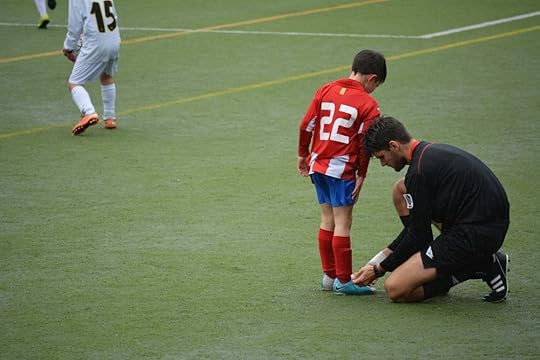
Joe can’t visit this Muslim nation, but he can train and coach from the sidelines.
February 17, 2025
Why Diar Stays
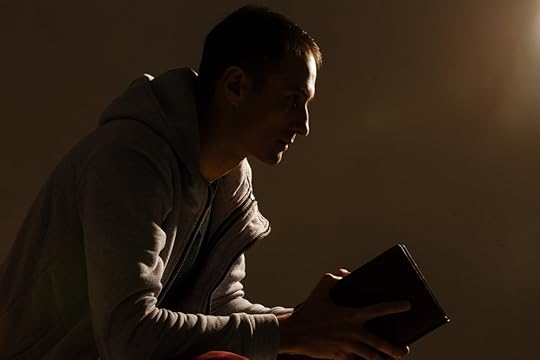
Diar grew up a devout Muslim, praying five times each day, going to the mosque, fasting during Ramadan. His father had always wanted him to be an Imam and sent him for training where he learned Arabic, the language of God.
As he studied the Quran he discovered contradictions. At the beginning of the Quran it says, “Pray for people who don’t believe in Islam.” Near the end of the book it says, “If people don’t believe in the God of Islam you must kill them.”
When he asked his teacher, he answered, “You must obey. This is the Word of God.”
Diar knew he wouldn’t.
At the same time the Islamic regime in Iran was mistreating its people, especially the Kurds. Diar is Kurd.
He wanted to leave Islam behind. Quietly he began exploring different faiths.
He prayed, “God I want to know you! Who are you? Are you there? Are you good? Why is there so much evil in the world?”
He was searching for God but after four years he’d found nothing. So he became an atheist and joined the Communist underground resistance to the regime.
He was angry. He was empty.
One night he had a dream. Over the mountains he saw a shining light in the sky. People were calling out, “Jesus is coming!” The light made him see that each person had dark things inside that controlled them. They were deaf and blind slaves. He saw the darkness within himself and he was afraid.
He woke and began his search for Jesus. He knew the Quran said Jesus was a prophet. But how could he go to find out more?
If he visited a church and the regime found out, he could be imprisoned or worse.
So he traveled to a neighboring country to find a church and learn about Jesus. He visited a house church where he knew people and they shared the gospel with him. He repented, put his faith in Jesus and was baptized.
He returned to Iran wanting to tell everyone they could be forgiven and freed from the darkness within that controls them. “You’re a slave and you need Jesus to set you free!”
He proclaimed God’s Word with power. He talked to everyone he knew. He told them about his dream and the dark reality within. People were set free by Jesus, they were healed, they were forgiven, they were delivered.
The Word spread and grew. So did the opposition from the Islamic government and radical Muslims.
As the movement grew, it was hard to remain secret.
Diar fled the country until the opposition died down.
“Despite the danger, I still wanted to reach my people and my nation. Yet I didn’t know how. I prayed that God would lead me to the right people. I met some Koreans who introduced me to Jerry. He told me he would be honored to help me reach my nation.”
Jerry gave us simple, but powerful ways to share the gospel, make disciples, plant churches and reproduce leaders. We call it the 4-Fields.
Diar returned home.
“As soon as we implemented the training, the movement took off. We were surprised it was growing so fast.”
“Each disciple reached the people around them. We took the 4-Fields training to locations across the country — different regions, different cities. We’ve been doing that for seven years.”
“We could not have done it without the training and the coaching, the love and support. Jerry has released everything to us — he teaches us and then we do it and train others. We teach, we baptize,we help disciples start churches.”
“We have a vision for every village and neighborhood to have a church and access to the Bible.”
“Muslims respect the Bible, it’s a holy book. When you give them a Bible they respect it. When we say, ‘This is a holy Bible," they kiss it and put it with the Quran.’”
“We have started 2,000 churches with some streams to the 12th generation. The churches vary in size from four to twelve people.”
I asked, “Why don’t you leave Iran? Why not escape to a safe place?”
Diar answered, “We have experience with God. Now we tasted and we know this is real. Jesus is our savior, our God.”
“We saw a lot of people change their life. And we know this is true. We will die one day, but with Jesus, we have eternal life. We believe.”
Podcast: 344-Diar and Miriam’s Story
February 5, 2025
344-Diar and Miriam’s Story
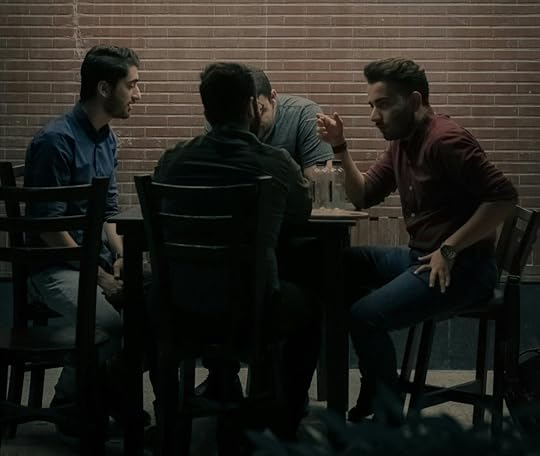
Diar and Miriam are going after movements of disciples and churches somewhere in the Middle East.



